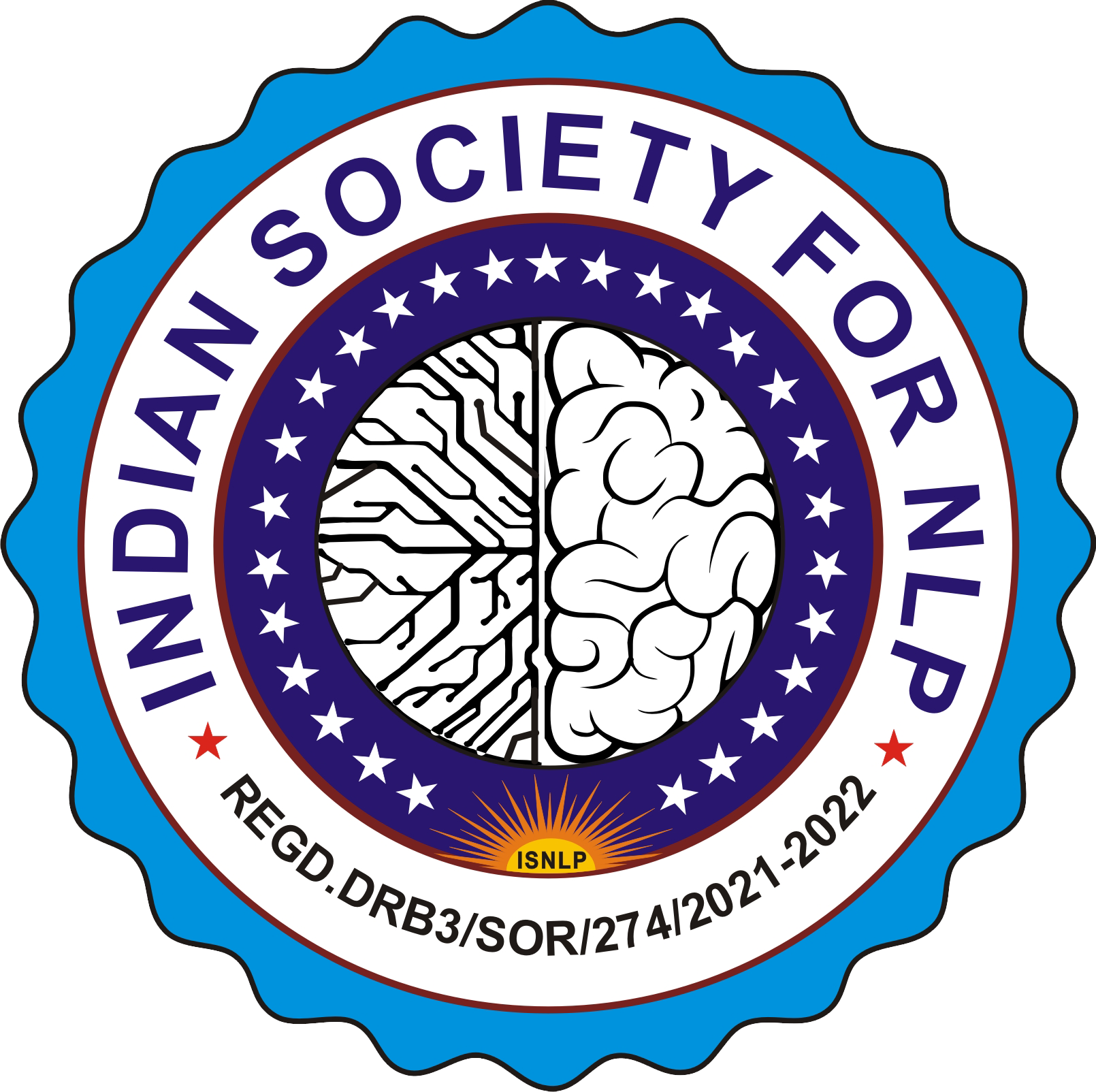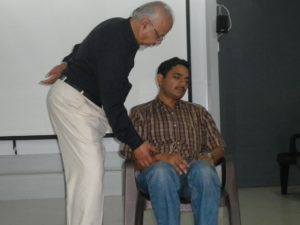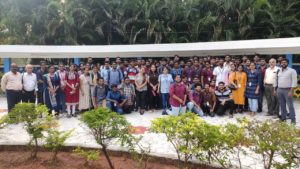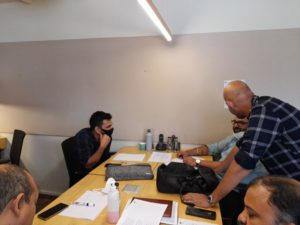Qualifying in NLP
What is involved in becoming certified as an NLP Practitioner?
There are a variety of different training formats available today and the most important principle to grasp is that one training course, however long or short, will not make you a skilful practitioner. Becoming proficient with NLP requires practice of the right skills over time. ISNLP are particularly interested in promoting the importance of continuous professional development and their levels of membership reflect that focus. To make sure that you are practicing the right skills, it is important that the company with whom you choose to do your training thoroughly cover the basics that make up NLP.
(A) Duration of Training: Minimum of 48 hours of (Live / Online) training in the basics of NLP patterns taught by a Certified Trainer, or a certified Master Practitioner under the supervision of a trainer.
(B) Demonstration of ability to identify the following basic skills, techniques, patterns and concepts of NLP and to utilize them competently with self and with others.
1. Behavioural integration of the basic presuppositions of NLP, including:-
• Outcome alignment with respect for others’ models of the world and the ecology of the system.
• Difference between map and territory.
• There is only feedback (cybernetic)-no failure.
• Meaning of your communication is the response you get.
• Adaptive intent of all behaviour.
• Everyone has the necessary resources to succeed.
• Resistance is a signal of insufficient pacing.
• Law of requisite variety.
2. Introduction and Understanding of the following NLP concepts / principles
o Pacing and Leading (verbal and non-verbal).
o Rapport, establishment and maintenance of.
o Sensory Acuity Calibration.
o Representational systems (predicates, and accessing cues).
o Meta-Model.
o Milton-Model.
o Elicitation of well-formed, ecological outcomes and structures of present emotional state.
o Metaphor creation.
o Frames; contrast, relevancy, As If, Backtrack.
o Anchoring (VAK).
o Anchoring Techniques (contextualized to the field of application).
o Ability to shift consciousness to external or internal, as required by the moment’s task.
o Dissociation and Association.
o Chunking.
o Sub Modalities.
o Verbal and non-verbal elicitation of responses.
o Accessing and building of resources.
o Reframing.
o Strategies; detection, elicitation, utilization, & installation.
o Demonstration of behavioral flexibility.
General criteria for certification assessment
• Certification assessment will follow over the length of the entire training as well as at the designated evaluation period
• The focus of the certification will be on the process of feedback, learning and integration, NOT on the issue of “testing”
• Students are expected to show progressive skill development over the entire training with the final assessment period being a confirmation of this development
• Students will be assess for attitudes, skills, and knowledge
• Students will be provided with feedback by their trainer on the areas of their greatest strengths and of the areas needing improvement
• Students that are not immediately certified will have explained to them why, and what they need to do next in order to attain certification
• Unethical or consistent unecological use of the NLP technology can lead to non-accreditation
Approved Trainings are issued a seal of approval from ISNLP
REMEMBER:
The official seal of the ISNLP on a certificate is only valid when accompanied by the signature of the Approved NLP Institute/Trainer.
Look for our approved seals on NLP Trainings throughout INDIA and the world.
What is involved in becoming certified as an NLP MASTER Practitioner?
Master Practitioner does require certification at Practitioner level. It generally builds on the Practitioner material in far more intensity, particularly modelling, language, and significant new material. Students develop skills to change beliefs and values in themselves and others in a way that fits their lifestyle, family and work systems.
Some Master Practitioner courses include modelling assignments. These assignments should focus on modelling real expertise and not mediocrity. Modelling mediocrity will only produce mediocrity and teach you nothing about the real power of modelling excellence.
A. Duration of Training: Minimum of 90 hours of (Live /Online) advanced training taught by a ISNLP certified trainer. A minimum of 15 hours of direct trainer supervision.
B. Demonstration of the ability to identify the following basic skills, techniques patterns and concepts of NLP and to utilize these competently with self and with others.
General criteria for certification assessment of Master Practitioner are:
Trained by an ISNLP registered NLP Trainer
The certification training meets ISNLP training structure requirements minimum of 130 hours of formal course room training. (excluding breaks longer than 30 minutes) minimum of 15 days of formal course room training.
• The attended training meets the ISNLP accreditation competency standards and guidelines
• The candidate has successfully met the competency standards of ISNLP of NLP Master-Practitioner, as assessed by the registered ISNLP Trainer
• The certificate needs to be signed be at least one ISNLP NLP Trainer, recommended two
• The certificates need to have the starting and ending dates, as well as the numbers of hours and dates written on them. And all certificated need to ordered by the international or national ISNLP coordinator and be numbered and sealed with the official ISNLP seal
MASTER PRACTITIONER CERTIFICATION REQUIREMENTS
• The candidate is of ISNLP Practitioner accredited status.
• The candidate has successfully met the following ISNLP competency standards requirements for an NLP Master Practitioner, as assessed by the registered ISNLP Trainer:
• Behavioural competency in all Practitioner level skills and the Exhibits ability to do several patterns simultaneously applying conversational skills.
• The ability to identify, utilize and demonstrate one’s integration of the Master Practitioner content, skills, frames, concepts, principles, processes, techniques and distinctions.
• The ability to do personalised interventions
• Exhibited ability to operate from an ecological framework and philosophy, and to do ecological change work with self and others
• Advanced development of flexibility with ones’ own representational systems and perceptual filters
• Exhibited capacity to shift back and forth between content and form as suitable to context
• Ability to track shifts in distinctive logical levels of internal processing and logical types of descriptions
• Ability to facilitate one’s own learning processes at the appropriate logical levels
• Incarnation of the Presuppositions of NLP
• Multi- tasking abilities
• Ability to maintain resourceful states for intellectual, emotional, and physical choice
• Ability to process one’s own modelling of the world and to re-organize one’s processing as appropriate to the context and outcome
Certification requirements include the successful completion of the following:
• Written assessment for intellectual integration
• Behavioural assessment for behavioural integration
• Case study documentation Personal/Professional Application Report
• Assessment criteria for NLP Master-Practitioner
• Degree of integration, mastery and elegance with all NLP Practitioner Skills
• Degree of integration of NLP Master Practitioner Process Skills
• Conscious/Unconscious Embodiment of the Legs of NLP
• Conscious/Unconscious Embodiment of the Presuppositions of NLP
• Conscious/Unconscious Multi- tracking:
• Multi Layered Outcomes
• Multi-Level Calibration Skills
• Multi-Level Conscious/Unconscious Processing
• Ability to Be At Choice With the Process of Identification and Self Evaluation
• Precision Resourcefulness Through All Representational Systems
• Scope of Sensory Flexibility
• Perceptual Sorting Flexibility (Metaprograms and Perceptual Positions)
• Ability to Track One’s Own Epistemological Processing
• Ability to Track the Epistemology of Others
• Epistemological Flexibility
• Ability to Track Logical Levels and Logical Typings
• Ability to Process Learning from Achievement
• Ability to Establish and Maintain Multiple levels of Rapport
• Ability to Separate Process from Content About Process
• Ability to Deliver Deliberate Multi-Level Communications
• Ability to Deliver Deliberate Multi-Level Communications
• Ability to Generalize and Contextualize the NLP Master Practitioner Content and Skills to Other Fields of Personal Interest
• Degree of Integration of NLP Master Practitioner Content Knowledge and Skills
• Content Knowledge
An ISNLP NLP Master Practitioner is expected to know the following content at appropriate levels of frames, concepts, principles, processes, techniques, and distinctions:
METAPROGRAMS – ELICITATION – CALIBRATION – UTILIZATION – CHANGE – FLEXIBILITY
• Toward – Away
• Internal – External Frame (with check)
• Sameness – Difference (with check)
• Possibility – Necessity
• Global – Specific
• Time Sorting: In Time – Through Time
• Time Orientation: Past, Present, Future, Atemporal
• Primary Interest: People, Place, Activity, Things, Information
• Self – Others
• Task – Maintenance (or Task- Relationship)
• Options – Procedures
• Convincer Sort: Representational Systems, Time Frames – (automatic, period of time, number of time, every time, never)
• Index Computations (internal processing, internal states, external behaviors)
Optional:
• Independent – Proximity – Team/Cooperation
• Proactive – (P) Reactive – Inactive
• Contextualized – Detailed
• Rule Structures (My, Yours, No, Their, Our, THE)
• Decision Sort: Looks right, Sounds right, Feels right, Smells right, Tastes right, Makes Sense
• Activity People, Activity Things, Activity Systems
• Toward/Away Harmony, Toward/Away Disharmony
• Challenge – Ease
• Context/Content Ratio
VALUES (CRITERIA) – ELICITATION – CALIBRATION – CLARIFICATION – UTILIZATION – CHANGE WORK
• Toward and Away Values
• Ends and Means Values
• Values Hierarchy
Optional:
• Bullet Gravesian World Views Model
• Bullet McClelland Motive Model
• CRITERIA UTILIZATION PATTERNS
• Generation
• Detection
• Utilization
• ADVANCED STRATEGIES
• Streamlining and Installations
• Circuitry Clearing
Optional:
• Nested TOTEs
• ADVANCED SUBMODALITY WORK
• Sub modality Accessing Cues
• Temporal Sub modalities
• Advanced Timeline Work
• Changing emotions through temporal sub modalities
• Compelling Futures
• Changing the typology of the timeline
Optional:
• Multiple Timelines
• Spatial Submodalities
• Threshold Patterns
• Compulsion Blowouts
• The Now Patterns
• ADVANCED MILTON MODEL
• Leverage Inductions
• Overwhelm
• Confusion
• Overloading
• Pattern interrupts
• Fractionation
• Arm catalepsy
• BELIEFS – ABILITY TO DETECT, INSTALL, CHANGE AND UTILIZE
• Core Beliefs
• Belief Systems
• Enabling and Disenabling Beliefs
• Organic Belief Change Pattern (with Belief Molecule)
Optional:
• Belief parameters
• Degree of certitude
• Degree of affirmation
MODELING – ELICITATION-EXPLICATION-REPLICATION-TRANSFER-UTILIZATION
• Model selection
• Task decomposition
• Model extraction
• Data reduction and synthesis
• Model formalization
• Model transfer
• Inside and Outside Modelling
• Modelling I and Modelling II
• Contrastive Analysis
ADVANCED PATTERNS AND TECHNIQUES
• Sliding Anchors
• Contextual Marking
• Logical Levelling and Logical Typing
Optional:
• The Disney Pattern
• Self-Edit Patterns, alphabet edit, walking edit, breathing edit, self-generated edits
• Decision Destroyer
• Meta Mirror
What is involved in becoming certified as an ISNLP Trainer?
It is widely accepted in the global field of NLP that in order to deliver NLP Practitioner and Master Practitioner courses, the trainer should hold a certified NLP Trainers certificate themselves. So, for those people who would like to be able to deliver NLP Practitioner training themselves, the next step is to take an NLP Trainers Training Course.
Trainers Training will equip you with the skills you need to be able to demonstrate NLP techniques and teach others to experience NLP. You will learn about course structure and presentation skills. In order to undertake Trainers Training you do require certification at Master Practitioner level.
Very few people in the UK are recognised as being able to deliver Trainers Training. Please check our guidance on Master Trainers.
Requirements for certification as an ISNLP Trainer are:
• The Trainer’s Training is/was conducted by an ISNLP Master Trainer authorized to do so by the ISNLP Board of Directors
• The certification training meets ISNLP training structure requirements
• The attended training meets the ISNLP accreditation competency standards and guidelines
• The certificate needs to be signed by at least two ISNLP NLP Master Trainers
• The certificates need to have the starting and ending dates, as well as the numbers of hours and dates written on them. And all certificates need to ordered by the ISNLP coordinator and be numbered and sealed with the official ISNLP seal.
GENERAL CRITERIA FOR NLP TRAINER
• The candidate is of ISNLP NLP Master Practitioner accredited status
• The candidate has attended and successfully completed an ISNLP Trainers training
• The candidate has successfully met the ISNLP competency requirements for an ISNLP Trainer, assessed by at least two authorized ISNLP Master Trainers
The candidate has successfully completed the following:
• Written assessment of intellectual integration of Practitioner, Master Practitioner, and Trainer content (at least 85% correct)
• Behavioural Assessment of presentation and training skill levels
• At least two (30 min. +) evaluated NLP presentations before an audience with feedback from the audience and the ISNLP Master Trainer
• An unannounced impromptu presentation and/or demonstration of an NLP content piece or technique before an audience
• Assessment of competency in training design
• Exhibits attitude based on ecology, learning, and the living embodiment of the presuppositions of NLP
• It is strongly recommended that the candidate has either reviewed and/or assisted with a Practitioner and Master Practitioner program since their original training at those levels as a student
• It is strongly recommended that the candidate has received 20 hours of either personal coaching, supervision, or therapy by a certified ISNLP NLP Trainer
INTELLECTUAL AND BEHAVIORAL COMPETENCIES
An ISNLP NLP Trainer is expected to demonstrate intellectual and behavioural competence in the following areas at appropriate levels of frames, principles, techniques and distinctions:
• Excellence in attitudinal, behavioural, and intellectual competency in all Practitioner and Master Practitioner level skills and the exhibits ability to do several patterns simultaneously at multiple levels
• Exhibits ability to plan a complete ISNLP Practitioner and Master Practitioner accreditation training:- At the least, setting introductory and concluding frames, setting outcomes, break-apart and sequencing of information and experience and balancing between ‘information–giving’ and ‘occasions for information discovery’.
• Exhibits ability to design and conduct the delivery of NLP content pieces such as concepts , techniques and principles.:- At the least, providing for both overt and covert learning, including previously learned material for cumulative learning, specifying outcomes of exercises, providing a task for all involved persons insuring behavioural learning, including a future pace.
• Exhibits ability to facilitate within students the learning of NLP content and the development of NLP skills and attitudes
• Exhibits ability to create and maintain outstanding levels of rapport with all participants, colleagues and trainers
• Exhibits ability to design and facilitate group inductions overtly and covertly
• Exhibits ability to establish and maintain rapport with participant groups
• Exhibits ability to work ecologically with participant groups
• Exhibits ability to pace and lead a group in ecological directions
• Exhibits ability to model the learner
• Exhibits ability to pace, lead, incorporate and utilize the distinctions in world views between students-student(s) and trainer-student(s)
• Exhibits ability to utilize Satir Categories as applied to group communication
• Exhibits ability to design, facilitate and debrief exercises
• Exhibits ability to deliver instructions, directions, guidelines, teachings for NLP techniques
• Exhibits ability to demonstrate all Practitioner and Master Practitioner patterns overtly and covertly
• Exhibits ability to create and utilize stage anchors
• Exhibits ability to design and deliver nested loops
• Exhibits ability to answer questions and facilitate unconscious processes in an open frame
• Exhibits ability to coach by facilitating unconscious learning processes
• Exhibits ability to utilize environmental influences to facilitate optimum learning at conscious and unconscious levels
• Exhibits ability to facilitate learning at different logical levels and of different logical types
• Exhibits ability to design and conduct trainings that facilitate different adult learning styles
• Exhibits ability to appropriately assess and evaluate students at Practitioner and Master Practitioner levels
• Behavioural demonstration of being able to “walk what you talk and talk what you walk”
• Excellent mind / emotional state control, emotional stability, stress resistance and self-management
• Exhibits ability to know and process your own model of the world and to adjust yourself harmoniously, ecologically, and courteously to another person’s model of the world
• Exhibits ability to handle and resolve conflict, and to make effective and ecological decisions as appropriate to context
• Basic understanding of common knowledge models from psychology, physiology, brain research, therapy and other related areas to NLP
• Exhibits ability to design, deliver and utilize metaphors in training
• Exhibits ability to give and receive feedback in educative and self-evolutionary ways
• Exhibits ability to design, deliver and facilitate educative tasking
• Exhibits ability to handle hecklers, under achievers, “problem” cases, ecological and/or ethical issues
• Exhibits ability to calibrate groups and to respond accordingly
• Exhibits ability to alter one’s own training style as appropriate to context, audience and outcome
• Evidence of a personal style, and artistry (indicating that the new trainer is integrating skills into his/her own behavior).
• Validation of an understanding of the process of NLP Practitioner and Master Practitioner NLP trainings
What is involved in becoming certified as an NLP Master Trainer?
Only a Master Trainer of NLP, or someone who has reached the equivalent standard within the ISNLP can deliver NLP Trainers Training and issue an NLP Trainer’s certificate to an NLP trainer.
There are very few Master Trainers in INDIA and ISNLP has worked with many other recognised NLP certification bodies to compile a set of clear Master Trainer criteria required in order for someone to be recognised as an ISNLP Master Trainer.
Some certification bodies have their own criteria, in addition to these minimum criteria, for achieving Master Trainer status. These criteria are also recognised by many international certifying bodies that train and certify for Master Trainer status ensuring that the applicant is having attained a superior level of training excellence in the domain of NLP Certification trainings. The applicant is also able to conduct provisional NLP Trainer Trainings which are recognized by ISNLP as valid qualification for entry to an official NLP Trainer accreditation assessment process as conducted at an official ISNLP Master Trainer.
The request for entry to the assessment process of Master Trainer must be accompanied with a personal voucher from the NLP Master Trainer with whom the applicant has trained with a structured framework of guidelines inclusive of mentoring or co-mentoring arrangement between the applicant and the Master trainer:-
1. The request should be in the form of a report or can be like ‘logs’ describing (conceptualizing) their experience of engaging with the participants during the programs and engagement with their clients. (Such as Interventions in organisations, coaching, counselling, healing or facilitation)
2. One report on their “journey as a professional” and learning episodes in the field of NLP.
3. One report on a co-facilitation in an ISNLP approved Trainers Training program citing their learnings and usefulness of applied NLP in the journey of professionalism.
The attainment of NLP Master Trainer Status symbolizes the bearer has:
• Attained a recognisable level of training excellence in the context of NLP Certification Trainings
• Made a recognized contribution to the know-how of NLP
• Enthral in multi-level tasking , e.g., purposeful communication.
• Identify the distinctions between the forms of conscious and unconscious mind communication
• Form the uniqueness between ‘thinking content’ and the ‘system of the thinking content’ (procedure).
• Integrate the NLP operational presuppositions into their thinking and behaviour.
• Know the difference between remedial and generative change.
• Combine the various elements of the NLP techniques to design personalised interventions.
• Build and utilize states of consciousness and physiology leading to greater flexibility, variability, creativity, imagination, inspiration, ingenuity, inventiveness, resourcefulness, and mobility in thinking and in action.
• Make sensible shifts in perspective, state and behaviour (e.g., re-sequence usual representational system sequences to disrupt “less-than-resourceful” states to keep accessible opportunities for discovery, creativity, learning and continued personal and professional development for themselves and others.
• Utilize linguistic skills with purpose, e.g., use of conversational language in ways that demonstrate “perspective driven intervention.”
• Develop a greater awareness and utilization of a systemic approach.
GENERAL CRITERIA FOR NLP MASTER TRAINER
• The candidate is an accredited ISNLP Trainer
• The candidate has attended and successfully completed an ISNLP Master Trainer’s Training as authorized by the ISNLP Board of Directors
• The candidate has successfully met the ISNLP competency requirements for an NLP Master Trainer, as assessed by the ISNLP Board of Directors
TRAINING EXCELLENCE
• Have fully conducted as the principal ISNLP trainer a minimum of 5 NLP Certification Trainings consisting of at least one Practitioner and one Master Practitioner Certification Trainings. to ISNLP standards
• Dates of conducted trainings to be presented to the ISNLP Board of Directors along with the signatures of the students who have attended those specific programs
• Have trained and accredited to ISNLP standards a minimum of 50 NLP Practitioners and 10 NLP Master Practitioners
• This is to be monitored by the process of the NLP Trainer submitting to the ISNLP Board of Directors signed acceptance forms from each of their certified students for receipt of their Certificates, which are to be correlated to the number of ISNLP certificates and seals that have been requested by that NLP Trainer
• It is strongly recommended that the candidate has assisted and co-taught in an ISNLP Trainer’s Training at least once, and have received successful evaluations from a minimum of two ISNLP Board of Directors based on the degree of training expertise, content knowledge and attitude
RECOGNIZED CONTRIBUTION TO NLP
Have submitted to the ISNLP Board of Directors a write up of their contribution to the field of NLP. Successful approval of the submission by the ISNLP Board of Directors (with input from the ISNLP Board of Advisers) is based on the following criteria:
• The contribution constitutes a new technique or model of intervention for change that allows NLP to do something it could not do before, or could not do as easily, elegantly or generatively
• The contribution is able to be operationalized in a practical form
• The developer is to conduct a presentation of their contribution at an ISNLP International Conference if requested to do so
ISNLP is given the rights to publish the contribution, with all due credit to the developer, for dissemination to the NLP community in the most appropriate form as determined by the ISNLP Board of Directors (with input from the ISNLP Board of Advisers)

How could ISNLP help you?
Upcoming Events
- There are no upcoming events.









